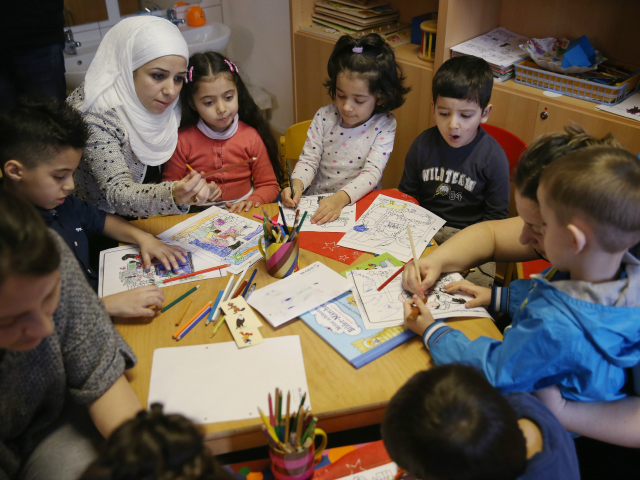Children granted refugee status in Germany will cost the country an extra 67 billion euros (£58bn/$76bn) to educate, according to an assessment of the costs of the migrant crisis.
Around 40 per cent of the million+ people who arrived in Germany last year are believed to be 20 or younger, meaning the country could need up to 25,000 new teachers while migrant children are denied places because schools are already full.
Dieter Dohmen, president of the Research Institute for the Economics of Education and Social Affairs, said the report showed the challenge facing German authorities.
“We have done some new calculations which put the full cost of refugees coming to Germany at €67 billion through their whole education pathway,” he said.
“If we look at the numbers so far some 200,000 have to go to kindergarten while another 300,000 will have to go to school. Then there is vocational education and training and higher education.
“If you look at someone who is three, they have to go to childcare, primary, secondary and higher education so this is a figure for the next 20 years.”
The Times reports that Germany had been expecting the number of schoolchildren to decline as the number of Germans having children continues to drop.
Education union president Marlis Tepe said: “The school system was not prepared for this number of new students.
“We have 16 federal states and these 16 governments have to hire something like 25,000 new teachers, but there are not enough teachers and in some regions they are difficult to find.”
Meanwhile, education journalist Armin Himmelrath said schools will have to hire other support staff as well as teachers.
“Almost every school in Germany will have to deal with refugees because of the way they are distributed around the country.
“As well as teachers, schools need social workers and psychologists — the idea of a social worker at a school is not very common in Germany.”
Germany faces another round of state elections next month, with the anti-mass immigration Alternative for Germany (AfD) party looking likely to take up to 20 per cent of the vote in Angela Merkel’s home state.

COMMENTS
Please let us know if you're having issues with commenting.